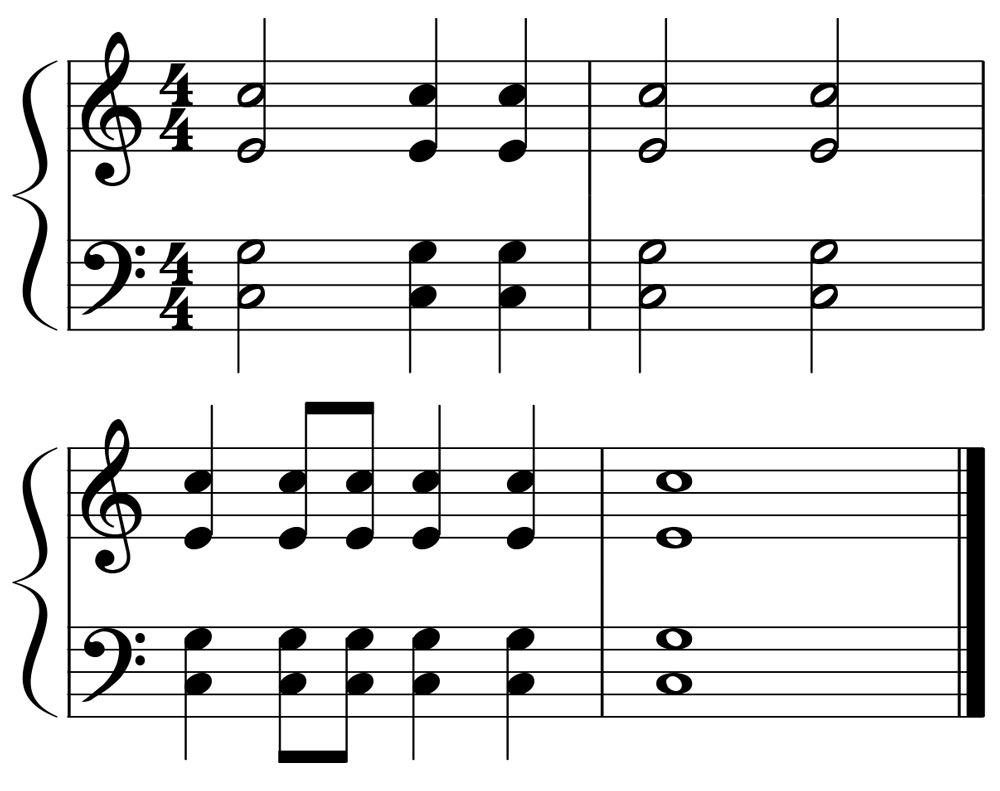Fifth in a series of short & sweet studies inviting you to internalize commonly-used major triad patterns by ear, intellect, eye, and muscle…
This is a STUDY, not an exercise. Make sure you understand the difference by visiting Studying, Practicing, & Exercising.
How to use this study
As always… allow your Musical Mind to lead, play with a metronome (at a comfortable tempo), record yourself, listen to the playback immediately, and ask yourself: Is that what you intended to play?
If not, think about possible reasons why and experiment with ways to move your body (choreography) until your performance lives up to your musical intentions.
Working in this disciplined way (in just a matter of seconds, by the way) will take every aspect of your musicianship–ear training, technique, rhythm, etc–to the next level, guaranteed.
Major Triad Four-Part Harmony
Note the openness of this chord voicing where it’s appropriate to think of the four voices (top to bottom) as soprano, alto, tenor, and bass…

Frank’s rendition @ 96 beats per minute…
Next Steps
Using your knowledge of scales and chords, play this in all major keys. Doing so will take your ability to hear, think, see, and play music to a whole new level.
Try playing at very fast and very slow tempos. Doing so will help you discover and tighten up every loose screw in your technique and rhythm!
learn more… Major Triad Pattern: Two-Handed Triplet Arpeggios

Leave a Reply